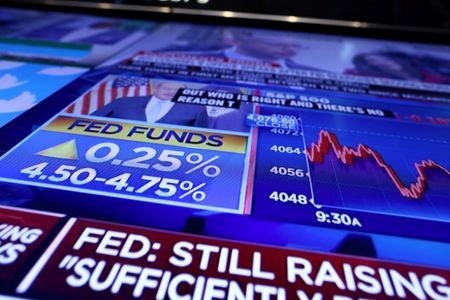




Policy Rate Updates: BSP outlook — cloudy with a chance of rate cut
 DOWNLOAD
DOWNLOAD

January Economic Update: Growth slows, prices rise
 DOWNLOAD
DOWNLOAD

Inflation Update: Up, up, and away?
 DOWNLOAD
DOWNLOAD


Investors pull cash from classic risk plays as Fed rate picture shifts

LONDON, Feb 17 (Reuters) – Investors turned more cautious in the week to Wednesday, according to data from Bank of America, as a run of data prompted many to raise their forecasts for how high the US Federal Reserve will take interest rates.
BofA Global Research’s weekly “Flow Show”, released on Friday, showed the largest outflows from technology funds since September, the largest outflows from emerging market debt funds in 14 weeks, and the largest outflows from junk debt funds in eight weeks.
Stronger-than-expected data on US employment, retail sales and inflation this month have pushed up expectations for how much higher the Fed will need to raise rates, a development that is typically bad news for riskier stocks and emerging market assets.
BofA analysts said the data means it is “mission very much unaccomplished for the Fed” despite its 450 basis points of monetary tightening in this cycle so far.
“Fed tightening always ‘breaks’ something,” they add.
Emerging market debt funds saw outflows of USD 700 million, the largest weekly outflow in 14 weeks, according to the report which attributed the decline to debt investors reducing risk.
High yield – or junk – debt saw outflows of USD 2.6 billion, the largest in eight weeks, and tech funds had USD 1.1 billion of outflows, the most since September.
Elsewhere, there were USD 5.5 billion inflows to bonds, USD 1 billion inflows to cash, USD 300 million to equities and USD 45 million to gold.
Equity markets have largely shrugged off fears of the impact of higher for longer rates, so far.
The tech heavy Nasdaq is set for a weekly gain and is trading near the five-month high hit in early February, and France’s benchmark CAC 40 index hit a record high on Thursday boosted by solid results at some of the country’s biggest companies, including luxury names and energy firms.
However, BofA analysts said: “Remember ‘buy humiliation, sell hubris’ … this time last year, likes of Moderna, Tesla, Apple widely viewed as “must-own” stocks; this year, it’s likes of Exxon, Raytheon, Hermes … always hedge hubris.”
(Reporting by Alun John; editing by Amanda Cooper and Susan Fenton)
This article originally appeared on reuters.com





 By Reuters
By Reuters